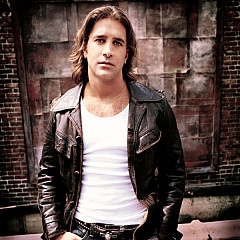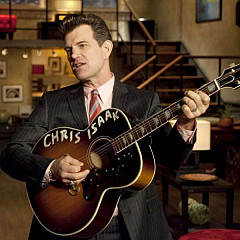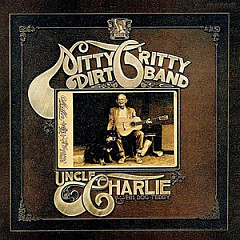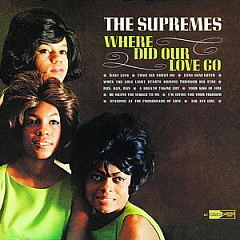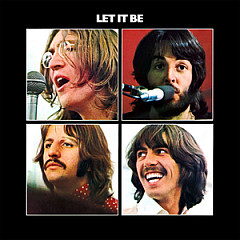Like reality TV stars, many televangelists of the '80s were especially brazen and achieved a high level of celebrity and scandal, not to mention wealth.
At the time, a lot of fire and brimstone was being hurled at rock music from watchdog groups like the Parents Music Resource Center and thunderous televangelists who viewed stars like Ozzy Osbourne as little more than guitar-wielding demons singing verses from Satan's personal diary. Unfortunately, when you deal with that much fire, you're bound to get burned. After the sexual and financial scandals of big name evangelists like Jimmy Swaggart and Jim Bakker broke wide open, many musicians, including Christians, took them to task. Some bands used them as examples to criticize organized religion; others attacked them for playing God and teaching an unbiblical "prosperity gospel." Either way, televangelist songs became a rite of passage in rock and heavy metal.
The Miracle Man: Rock vs. Swaggart
In 1986, Ozzy Osbourne made an ironic cameo appearance as a money-hungry TV preacher in the horror-comedy flick Trick or Treat, where he called rock stars "demonic beasts" and asked, "Whatever happened to the good old-fashioned love song?"
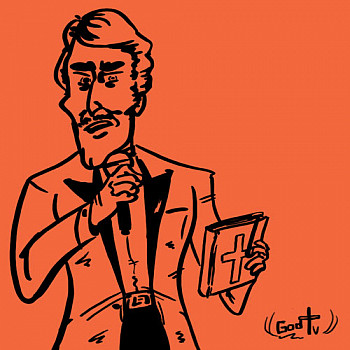 It was an obvious jab against his detractors, but paled in comparison to "Miracle Man" three years later.
It was an obvious jab against his detractors, but paled in comparison to "Miracle Man" three years later.Today I saw a miracle man
On TV cryin'
Such a hypocritical man
Born again, dying
He don't know where he's going
But we know just where he's been
It was our little Jimmy Sinner
That I saw on the screen
Ozzy relished the downfall of powerhouse televangelist Jimmy Swaggart ("Jimmy Sinner"), who publicly blamed rock stars for the corruption of America's youth while he privately indulged in his own lustful cravings with prostitutes. Swaggart had turned his ire on Ozzy when a teenage boy committed suicide while listening to "Suicide Solution" in 1984. He used the incident to fan the flames that were continuing to build against the genre.
Swaggart was too preoccupied with his own battle to notice the one forming against him. As a side hobby, the preacher was hunting down his fellow ministers (or, more appropriately, his competition) like Jim Bakker and Marvin Gorman for their own illicit misconduct. Gordon, in turn, dug up evidence of Swaggart's motel liaisons with hookers and broadcast them to the world, leading to Swaggart's infamous "I have sinned against you" apology on his TV program in 1988. After being suspended, and eventually defrocked, Swaggart found comfort with yet another prostitute. This time around, he declared, "the Lord told me it's flat none of your business."
Bob Daisley, who co-wrote "Miracle Man" with Ozzy and Zakk Wylde, was going to call Swaggart out by name in the lyrics, but ultimately wanted it to be about "anybody being hypocritical and getting caught with their pants down." A few years later, an Ozzy-less Black Sabbath released their own televangelist takedown with the song "TV Crimes" ("Slow and steady, he's got time, to commit another TV crime, TV crime").
Ironically, Swaggart's own bloodline pulsed with the Devil's music: free-wheeling cousin Jerry Lee Lewis was a rock 'n roll pioneer, while cousin Mickey Gilley was a Country music star. Swaggart's cup of venom runneth over onto the emerging Christian rock scene, too. In 1987, he wrote the book Christian Rock 'n Roll, a Wolf in Sheep's Clothing, and regularly labeled groups like Stryper, who had mainstream hits with "Free" and "Honestly," as purveyors of evil.
Robert Sweet, drummer for the maligned Christian glam band, and his bandmate brother Michael, actually became Christians under the influence of Swaggart's TV program. Robert lamented the unfair crusade against the band: "I just feel that if we all supported each other we would make so much more of an impact. Jimmy Swaggart's words were so bad against Stryper. I saw him a few different times just humiliating us and ruining us in front of his viewing audience, and the effect is that millions of people are going to think Stryper is Satan."
Stryper, however, did not retaliate against Swaggart in their songs.
While "Miracle Man" set a standard for tearing the masks off of shifty televangelists, it was not the first song to do so. One of the earliest examples actually came from the Christian music industry.
Christian alt-rock singer Steve Taylor warned people against Swaggart and the like in his 1984 song "Guilty By Association":
It's a Telethon Tuesday for 'The Gospel Club'
Send your money in now or they're gonna pull the plug!
Just remember this fact when they plead and beg
When the chicken squawks loudest gonna lay a big egg
He went on to point the finger at Swaggart's followers who "should be checking The Book, but you'd rather listen than look." Therefore, they were guilty by association.
The following year, he released "You Don't Owe Me Nothing" and called televangelists "charlatans in leisure suits [who] saw dollars dancing in their heads."
Not surprisingly, Swaggart and company weren't happy with the criticism. Swaggart took a shot at Taylor's music in his 1987 book, writing "perhaps it could be correctly termed a religious nihilism - characterized by no future, no substance, no hope," while evangelist Bob Jones III called him a "Satanic influence upon the lives of young people."
Taylor also skewered pastor Robert Tilton for his brand of televised religion in 1993's "Cash Cow (A Rock Opera In Three Small Acts)."
The golden cash cow had a body
Like the great cows of ancient Egypt
And a face like the face of Robert Tilton
...Without the horns
Tilton broadcast his ministry through his Success-N-Life program, where he claimed sin was the cause of hardships like illness and poverty, and raked in nearly $80 million a year until his underhanded fundraising practices were exposed in the Primetime Live documentary "The Apple of God's Eye" in 1991. The following investigation didn't send him to jail, but it tanked his ministry.
Not to be outdone, Metallica's 1986 hit "Leper Messiah" laid into greedy preachers who lined the pockets of their expensive suits with false promises of salvation.
Time for lust, time for lie
Time to kiss your life goodbye
Send me money, send me green
Heaven you will meet
Money, Money, Money: Bakker is a Fakker
If one thing was certain, televangelists were not shy about flaunting their wealth - calling it proof that their teaching worked - from their fleets of Mercedes Benzes and Cadillacs, decked-out jets, and swank properties to their choice of designer watches. The Rolex was a status symbol for wealthy yuppies in the '80s and decorated the wrists of many a televangelist.
This man was preachin' at me, yeah, layin' on the charm
Askin' me for twenty with ten-thousand on his arm
Indeed, by that time the Rolex clocked in at anywhere from $1,000 to $14,000, depending on the model. Atkins was never one to write about controversial topics, but he couldn't help himself.
"Those guys are terrible and they need to be exposed," he said.
At the time, one of those guys was being investigated for his murky finances and adulterous behavior. Jim Bakker and his wife Tammy Faye were hosts of The PTL (Praise the Lord) Club, a popular TV program that opened its arms to people of all beliefs and all walks of life. With an average of over 12 million viewers, this also meant a lot of donations – enough to keep their Heritage USA theme park (yes, theme park!) in South Carolina thriving and a little extra to keep the Bakkers in the lap of luxury.
The New Yorker reported: "They epitomized the excesses of the 1980s; the greed, the love of glitz, and the shamelessness; which in their case was so pure as to almost amount to a kind of innocence."
Aside from writing themselves some hefty bonuses, Jim and his pals were selling $1,000 lifetime memberships that guaranteed unfulfilled perks, like a heavenly weekend at an unfinished luxury hotel. He paid off church secretary Jessica Hahn to keep quiet about his dealings, but resigned when she claimed he and another minister raped her. The whispers of homosexual affairs and drug use didn't help matters.
For Queensryche, the scandal was another example of corruption in America in "Revolution Calling," from the 1988 concept album Operation: Mindcrime.
All the shady preachers begging for my cash
Swiss bank accounts while giving their secretaries the slam
In 1988, the same year the Swaggart sex scandal broke, Jim Bakker was indicted on eight counts of mail fraud, 15 counts of wire fraud and one count of conspiracy. He eventually served 5 years of his 45-year sentence, while mascara-loving Tammy Faye remarried and became a gay icon with the documentary The Eyes of Tammy Faye. As for Hahn, she posed topless for Playboy and became a frequent guest on The Howard Stern Show.
Anthrax responded to the Bakker fiasco in their song "Make Me Laugh" with pointed references to the duo's expenditures, including their air-conditioned doghouse:
God says have a swimming pool
God says keep the doghouse cool
God says planes and boats and cars
God says have an amusement park
Anthrax drummer Charlie Benante lamented the hypocrisy of the stance against rock. "A lot of these evangelist organizations are ready to put down heavy metal music as corrupting, and there's the PMRC [Parents Music Resource Center], but in reality they are the bad eggs, the mind-manipulators. All we're doing is playing our music," he told Melody Maker.
Similarly, Slayer, who has a history of side-eyeing religion, asked in "Read Between the Lies":
Send your donations,
Contribute to the cause.
Luxuries, your righteous reward?
Frank Zappa continued the tirade against the Bakkers and their ilk in "Jesus Thinks You're a Jerk," where he laid into Tammy Faye ("an ugly little weasel 'bout three-foot nine"), and 700 Club host Pat Robertson ("Robertson says that he's The One. Oh he sure is, if Armageddon is your idea of family fun").
Robertson, who shirks the title of televangelist and calls himself a "businessman," was planning an ill-fated run for president ("hoping we will all follow him into The Twilight Zone").
1989 brought Depeche Mode's "Personal Jesus." While its meaning is hotly debated by Songfacts readers, it does contain a vague reference to televangelism:
Feeling unknown and you're all alone
Flesh and bone by the telephone
Lift up the receiver I'll make you a believer
Often, the TV preachers would implore audience members to pick up the phone and call in with donation pledges and in turn be rewarded with spiritual blessings or the promise of a prosperous future. The band's primary songwriter Martin Gore was actually inspired by Priscilla Presley's book Elvis and Me, where she wrote the King "became my father, husband and very nearly God."
Gore explained: "It's a song about being a Jesus for somebody else, someone to give you hope and care. It's about how Elvis was her man and her mentor and how often that happens in love relationships - how everybody's heart is like a god in some way, and that's not a very balanced view of someone, is it?"
In that respect, the many viewers who hung on the powerful words of men like Swaggart and Bakker without question probably related to the sentiment.
Reach Out and Touch Faith: Rock vs. Faith-Healers
And the hits just keep on coming in the new decade. In 1990, Iron Maiden took aim at "Jimmy Reptile and all his friends" in "Holy Smoke," a diatribe against false prophets. The following year, Phil Collins transformed into a salvation-selling shyster in "Jesus He Knows Me" by Genesis. He promised:
You buy a piece of me
I'll get you everything you wanted,
I'll get you everything you need
Don't need to believe in hereafter... Just believe in me!
At the end of the song's music video, Collins shouts: "Touch the Screen! Heal! In the name of Jesus! Heal!"
He was lampooning Ernest Angley, a Pentecostal preacher who still, as of 2014, preaches through his Ernest Angley Hour and The 90 & 9 Club TV programs. Angley wasn't prosecuted for any financial crimes, but did draw negative attention for claiming that prayer could heal HIV and AIDS in South Africa.
The concept of faith-healing made plenty of rock stars sick, including Zakk Wylde, who co-wrote Ozzy Osbourne's "Miracle Man." While fellow writer Bob Daisley saw that song as a dig at organized religion, Wylde saw it as a slam against false prophets and alleged faith healers who corrupt God's message for their own personal gain. He revisited the subject with "Counterfeit God" in 2000 for his band Black Label Society:
I feed off your unanswered fear
When visions of life's end appear
Hand over your will and then you'll see
Now get on your knees and worship me
Wylde explained: "I saw a TV evangelist. This guy sells out arenas, and he touches people on the head, and they're supposed to be blind, and then they're not blind anymore. That's the biggest backstabbing version of God I've ever... Anton LaVey's [founder of Church of Satan] got nothing over this guy. That's pure Satanism to me. He's backstabbing God so bad it's not even funny. People are paying money for that, and believe in that. How the hell are they believing it? This guy's playing God. To me, it's pure blasphemy."
Ten years earlier, the death metal band Death attacked the subject in "Spiritual Healing":
Blinded by the twisted ways you live
Kill for religion, will the Lord forgive?
Idiocy has stricken your mind
A real-life hell you will find
The Spiritual Healing album art depicted a faith-healing for a wheelchair-bound cancer patient at the mercy of a zealous preacher and his enthralled congregation. The album and its title song specifically targeted Peter Popoff, who called himself a prophet and faith healer until he was unmasked in 1986 on The Tonight Show Starring Johnny Carson. The scandalous pastor, who claimed he was receiving messages from God, was actually receiving messages from his wife, Elizabeth, through an earpiece. She gathered detailed information about the congregation, including home addresses and specific illnesses, and fed them to her husband. Even worse, Popoff would encourage his followers to "break free of the Devil" and throw their life-saving medications onto the stage.
Working with skeptic James Randi, electronics expert Alexander Jason captured secret audio of the whole sordid affair while Randi planted accomplices in the audience to be "healed" from fake sicknesses. On Carson's show, Jason provided clips of the "miraculous" healings and predictions paired with the damning audio. Popoff declared bankruptcy a year later.
Insane Clown Posse's "Hellelujah" (1997) presented a boy with "a twisted neck, tangled legs, crooked spine" who would miraculously be healed for the low price of $6,000. After the collection plates are gathered, a reverend worked his magic – not on the boy, but on the crowd:
Now, to the naked eye, it would appear
That this boy has not been healed
But I can assure you
This boy's spirit has been healed
Inside this tangled
Mangled frame is a healed little boy
His spirit is healed Hallelujah!
Just because the Hip-Hop duo doesn't have faith in the self-professed prophets doesn't mean they don't have a strong belief in God. Violent J explained: "We haven't lost any faith in God. In fact, we have more faith now than ever. We asked 'Where's God?' because as people go through their lives and face hard times, that is a question we all have asked ourselves, no matter who you are or how close to God you are."
As the crooked kings of TV religion fell from their pedestals, some wondered who would step up to take their place. In "Send Me Your Money," Suicidal Tendencies asked, "Who's gonna be the new king of the fakers? Who's gonna take the place of Jim and Tammy Faye Bakker?"
Lead singer Mike Muir to MetalSucks: "I'm making a point that I think the responsibility is that when somebody does something wrong, they need to be called out. When you don't call out the individuals, then everything else gets clouded with that crap. You walk into an outhouse, you're going to smell like shit. You go to a club where everybody's smoking, you're going to smell like smoke whether you smoked or not."
You're Not My God: Christians vs. Televangelists
While secular rock and metal bands have cornered the market on burning televangelists, they aren't the only ones carrying the torches. Christian artists followed Steve Taylor's example in confronting false preachers for twisting their faith into dollar signs. The Christian metal band Fireflight doesn't hold back with "Liar":
I'm sick of all your lies
(It's who you are)
We see through your disguise
None of your dreams come true
(It's time you know)
You can't sell the truth
Despite so many bad apples in the barrel, the televangelist scandals failed to spoil the whole bunch, or so it seems. In 2011, a Senate probe into televangelists' spending yielded no definitive evidence of wrongdoing. But they aren't without criticism.
Perhaps the biggest blow from the Christian music arena comes from rapper Shai Linne, who shredded a long list of TV preachers in "Fal$e Teacher$" that included 12 of the most popular current pastors: Paula White, Joel Osteen, Creflo Dollar, Benny Hinn, T.D. Jakes, Joyce Meyer, Fred Price, Kenneth Copeland, Robert Tilton, Eddie Long, Juanita Bynum and Paul Crouch.
He expressed the frustrations of many Christians over the "prosperity gospel," which he called a false theology that promises health and wealth to believers and the "fallen assumption that if I do the right things then I will be blessed by God, and if I do the wrong things then I will be cursed by God" - an especially dangerous idea when many prosperity preachers bring their teachings overseas to poverty-stricken nations.
Linne rapped:
You wanna know what all false teachers have in common?
It's called selfism, the fastest growing religion
They just dress it up and call it "Christian"
Don't be deceived by this funny biz
If you come to Jesus for money, then he's not your God, money is!
August 27, 2014, updated September 28, 2020
More Song Writing



